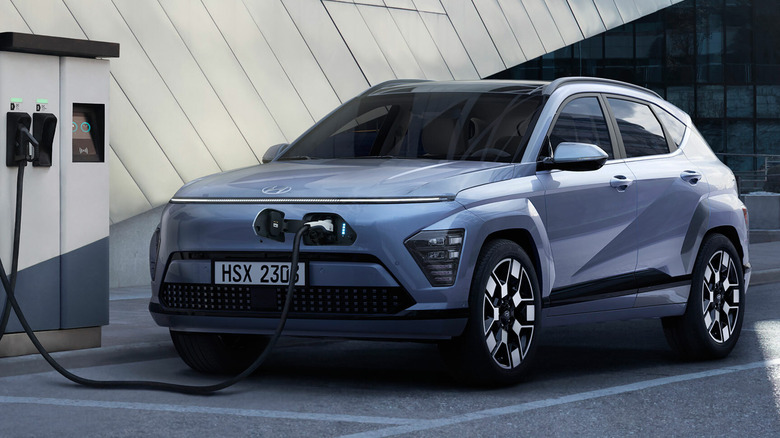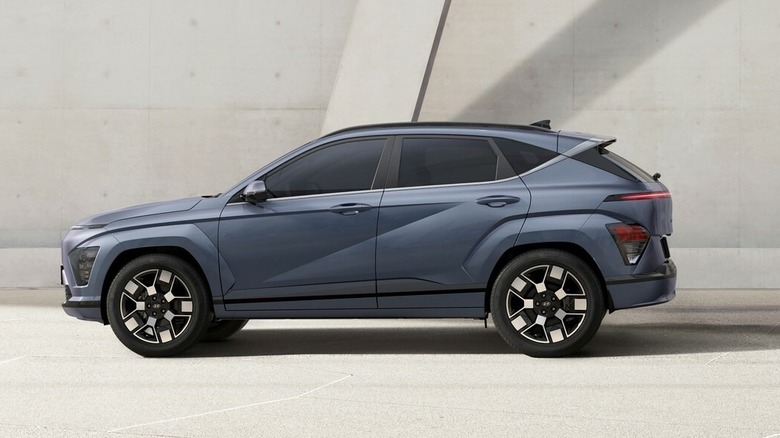Hyundai Gave The 2024 Kona EV A Bigger Battery, But More Range Isn't The Only Increase
After months of teasing glimpses, Hyundai has finally unveiled the second-generation of its popular Kona SUV, which has not only grown larger, but smarter. The new Kona is unique in that it was developed as an EV first and foremost, with the hybrid and internal combustion engine versions adapted from the EV's architecture. All three propulsion methods will also be available in Hyundai's sporty N Line trim as well.
Focusing on the all-electric 2024 Kona, two battery options will be offered: a standard range 48.4 kWh battery that provides a 213 mile range, and a long-range version with a 65.4 kWh battery that increases driving distance to 304 miles. Do note that these range figures were measured using the European WLTP method. The United States' EPA ranges will likely be approximately 10% lower since EPA testing more closely replicates real-world driving conditions.
Even so, the 2024 Kona Electric long-range variant — which is likely the only version that will be sold in North America — will slightly eclipse the current generation's EPA range estimate of 258 miles. This modest bump in range becomes more impressive when you consider that the 2024 model is much more spacious than the outgoing model, growing by nearly seven inches in length overall.
More like a dedicated EV
Since the 2024 Kona is based on 400-volt electric architecture, rather than an 800-volt system like its exclusively battery-electric siblings, it will be restricted to the same 100-kW Level 3 charging as the outgoing model. Nonetheless, Hyundai boasts that the battery can charge from 10% to 80% in just 41 minutes. The new Kona EV will also come equipped with standard vehicle-to-load technology (V2L), which basically allows the SUV to function as a mobile generator. U.S.-spec Kona vehicles will output 1.63 kVA, which is enough to power a campsite or small appliances.
The heavier focus on electrification has also delivered several features to the Kona that are lifted straight from the brand's Ioniq family, including the Smart Regenerative System, which adjusts the amount of regenerative braking applied based on driving style, traffic flow, and more. Also present is the Ioniq's active sound design (e-ASD) that makes faux engine noise inside the cabin, which Hyundai says "makes EVs more engaging for the driver."
Hyundai hasn't discussed pricing for the new Kona Electric, but given the manufacturer's price competitiveness, we don't expect a significant increase over the current-generation Kona's $33,550 window sticker (before incentives). Expect full details to be provided when the new Kona makes it U.S. debut at the 2023 New York Auto show in April.

